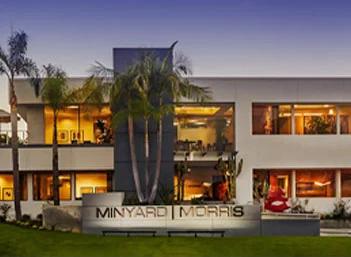There is a Limited Exception Under Family Code Section 3103 that Can Create a Legal Duty for a Grandparent to Support a Grandchild
Mother and father married, separated, and ultimately divorced. They had a young child, who was placed in the custody of the grandmother when neither parent was able to care for the child due to drug use. The grandmother joined the action to pursue custody of her grandchild, but later withdrew. The child received counseling, and suffered emotional distress arising out of the tenuous and hostile custody battle waged by both his parents and grandmother. The trial court ordered the grandmother to pay part of the cost incurred by appointed counsel representing the child, the father’s attorney fees and costs attributable to grandmother’s claims, and the child’s counseling costs. She appealed from those orders.
There are several issues that the court of appeal considered. First, does the scope of Family Code section 3153 extend to parties who are not parents? Section 3153 subdivision (a) allows the court to order “the parties” to pay the compensation and expenses of court-appointed counsel in proportions deemed just by the court. A grandparent can be joined as a party. In other words “the parties” are not limited to parents of the child. Thus, the compensation requirement of section 3153(a) does not only apply to parents of the child for whom an attorney is appointed, as the grandmother here contends. Thus the court rejected the grandmother’s argument that she was not liable for a portion of the expenses of the child’s counsel.
Second, may the court make a distinction between a third party entering a dissolution proceeding to defend the child from harm and a third party defending a property interest? Section 2030 provides that a court may order any party except a governmental entity to pay the amount reasonably needed for attorney fees and for the cost of maintaining or defending the proceeding. There is not a distinction between such cost apportionment to a third party entering a dissolution proceeding to defend the child from harm and a to defend property interests. The purpose of section 2030 is to create a scenario of equitable apportionment based on what is “just and reasonable” under the circumstances for each party. The court rejected the grandmother’s statute interpretation and argument that she need not pay a portion of father’s attorney fees and costs.
Lastly, can a court require a grandparent to pay the cost of the child’s past and future counseling? This argument did have merit. Generally, a grandparent does not have a legal duty to support a grandchild. However, section 3103 provides a limited exception that when a court orders visitation by a grandparent, the court has discretion to order a grandparent or parent to pay to the other a support amount for the child. That support can include “costs related to visitation,” medical expenses or necessities. The court found no causal link between the child’s visitation with the grandmother and the child’s emotional distress, nor that the child’s counseling was needed to facilitate visitation with the grandmother. The cost of counseling was outside the scope of section 3103. The court of appeal reversed the trial court order requiring the grandmother to pay the child’s counseling costs, but affirmed all other issues raised on appeal.
In re Marriage of Perry (1998) 61 Cal.App.4th 295





